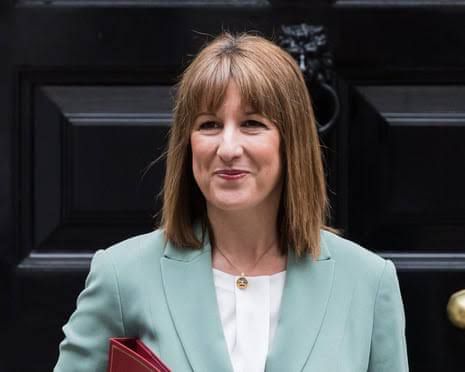Chancellor Rachel Reeves is reportedly considering imposing National Insurance (NI) on rental income, as part of efforts to close a projected £50 billion gap in the public finances.
According to reports, treasury officials are exploring the proposal ahead of the Autumn Budget. The plan, which would target so-called unearned income from property rentals, has drawn support from the Resolution Foundation ,a think tank previously led by Torsten Bell, now a Labour MP and adviser to Reeves.
Meanwhile critics warned the move could lead to higher rents, as landlords may respond by selling their properties or passing costs on to tenants, while supporters argue the change would not break Labour’s manifesto pledge not to raise income tax, National Insurance, or VAT, since it would extend the scope of NI rather than increasing the rate itself.
Currently, rental income is subject to income tax but not National Insurance. The proposed change would bring it in line with other forms of income, generating significant additional revenue. In 2022–23, net property income totalled £27 billion. Applying an additional 8% NI charge could have raised approximately £2.18 billion.
Data suggests that the most common income bracket for landlords is between £50,000 and £70,000, covering around 360,000 individuals. If implemented, the NI levy could cost them an additional £1,057 per year. Critics note that if current NI thresholds are preserved with a 2% rate kicking in above £50,000 smaller landlords would be disproportionately affected.
The Resolution Foundation had floated the idea before the last Budget, but it was not taken up at the time. Sources suggest it was kept in reserve and is now under more serious consideration.
Ms Reeves is also said to be weighing other tax reforms targeting wealthier property owners, including capital gains tax on the sale of high-value homes and replacing stamp duty with a levy on properties sold for more than £500,000.
Although, Chancellor is also considering reducing the tax-free pension lump sum.
A Treasury spokesperson declined to comment directly on the rental income proposal, but said:
“As set out in the Plan for Change, the best way to strengthen public finances is by growing the economy, which is our focus. Changes to tax and spend policy are not the only ways of doing this, as seen with our planning reforms, which are expected to grow the economy by £6.8 billion and cut borrowing by £3.4 billion.”
They added: “We are committed to keeping taxes for working people as low as possible, which is why at last autumn’s Budget, we protected working people’s payslips and kept our promise not to raise the basic, higher or additional rates of income tax, employee National Insurance, or VAT.”
While speaking Education Minister, Stephen Morgan declined to rule it out. He said: “It’s not appropriate for me to comment on ongoing speculation. It’s really important that we focus on the Budget and make sure it delivers for working people around the country.”
Morgan added that, “I can’t comment on that. Issues around the Budget are a matter for the Chancellor of the Exchequer.”
He concluded by redirecting focus to government priorities: “We want to grow the economy. I want to make sure we’re investing in families around the country. And that’s why I’m on your show today to talk about what we’re doing around childcare entitlement. Parents have just three days left to apply for 30 hours to fund their childcare.”
Read also: Reeves’s inheritance tax changes to cost average homeowner £82,000



